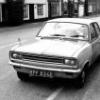Kia and Hyundai brake fluid leak recall
-
Similar Content
-
Leaking sunroof’s!
By danthecapriman,
- 21 replies
- 914 views
-
Hyundai Service Tools
By Sheefag,
- 7 replies
- 1,135 views
-
Takata Airbag recall.... CS3 and DS3 affected
By Back_For_More,
- 1 reply
- 257 views
-
A quarter of the remaining Hyundai scoupes …
By thedupleman,
- 10 replies
- 651 views
-
Rover 25 water leaks, other work
By lisbon_road,
- 2 replies
- 473 views
-







Recommended Posts
Create an account or sign in to comment
You need to be a member in order to leave a comment
Create an account
Sign up for a new account in our community. It's easy!
Register a new accountSign in
Already have an account? Sign in here.
Sign In Now